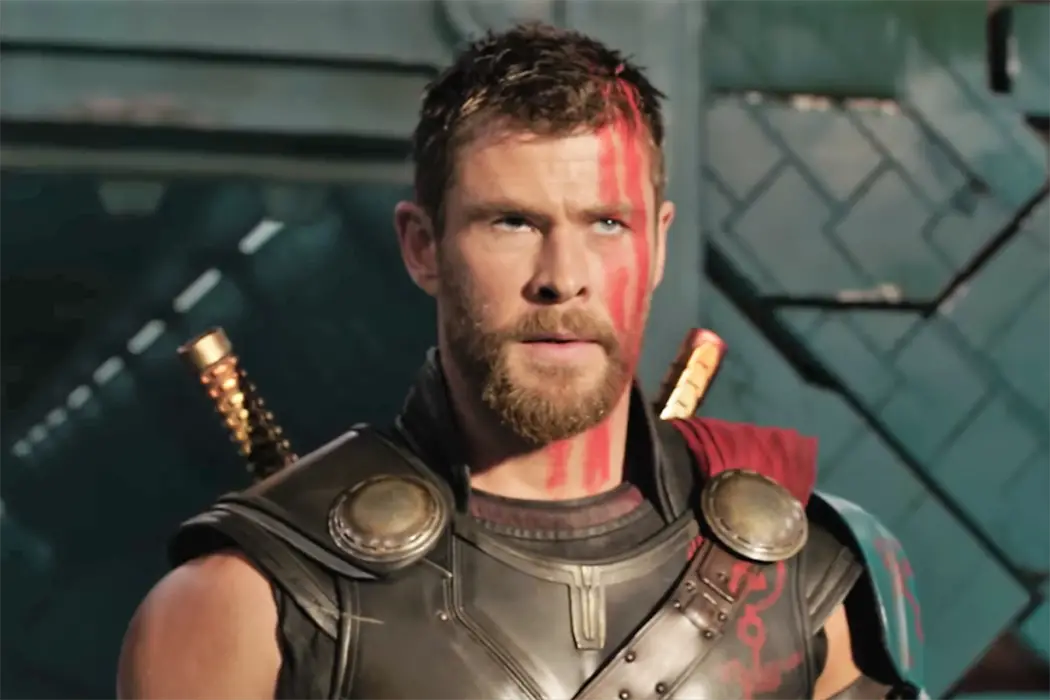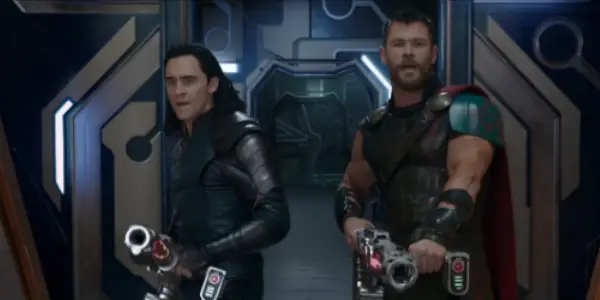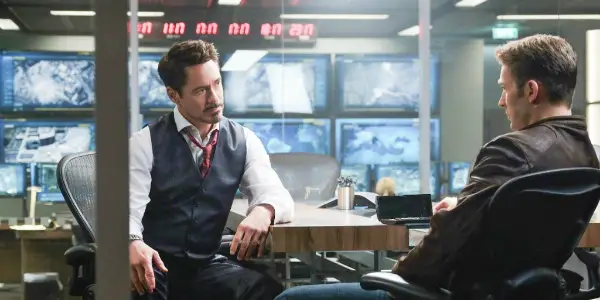THOR: RAGNAROK & The Perils Of Reinvention

Suchin is a freelance writer and Indian cinema junky. He…
It’s a strange feeling when the world appears to be going gaga over a film which left you feeling hollow, disappointed and somewhat cheated. Almost as if you’re missing out on the party somehow. Despite being hailed as one of the best Marvel films to date, for this writer and MCU enthusiast, Taika Waititi‘s Thor: Ragnarok was a conflicting and strangely heartbreaking experience. Like most critics, blogs and social media posts are so proudly proclaiming, the film is undeniably and unabashedly a lot of fun, which is also the most deeply problematic thing about it.
In a desperate attempt to reinvent and breathe new life into the Thor franchise, Marvel essentially pressed the reset button on the entire series, casting aside all character development, drama and conflict from the previous films in service of making a synthetic, soulless piece of fluff that boasts more cartoonish caricatures than characters.
For all the banter, amusement and dizzying imagination on offer, the film is a flashy show of empty movie calories designed to keep you invested in nothing beyond the next joke and provide a ‘good time’ rather than in any way challenge an audience. In the wider context of the overarching narrative of the Marvel universe, it’s a troubling film which single-handedly undoes years of storytelling before it and doesn’t just refuse to take itself seriously, it works extremely hard to get you not to care.
But the fact is many of us who have been passionate followers of the MCU from day one – who see these films as more than just harmless escapist entertainment, but also as great pieces of storytelling with well-etched characters, centred on real drama – do, in fact, care. We care a great deal about these larger than life, heroic figures and their journeys which we’ve followed them on for nine years now, and on that front, Thor: Ragnarok felt like a searing punch to the gut.
Indifference And Inconsistency
With this film, they appear to have disregarded any sense of consistency altogether, as characters we were deeply invested in, whose arcs had been built up over multiple films, were reduced to poor imitations of themselves. None more so than Tom Hiddleston’s Loki. Celebrated as one of the most memorable characters and strongest villains of the entire MCU thus far, Loki was instrumental in making the first Thor film stand out and proved to be a formidable villain for earth’s mightiest heroes in The Avengers. Not to mention being the best thing about an otherwise-flat Thor: The Dark World, which rested entirely on the complex love-hate dynamic between brothers. However, here he was diminished to a pitiful parody of his former self with his entire trajectory to date being done away with.
Similarly, the treatment of Thor’s character was no less reductive, going from formidable ‘God Of Thunder’ to ‘Aspiring Stand Up Comic’, given he was smothered with an almost desperate need to be relentlessly funny. While I agree the character was in need of more personality, to take such a brash, balls to the wall approach felt excessive.

Add to that the fact that the film was entirely devoid of even an iota of emotional heft, making it next to impossible to feel anything. This didn’t, however, stop the filmmakers from killing off a number of key characters, whose deaths didn’t have you batting so much as an eyelid. Equally, the ridiculous “Asgard is not a place it’s a people” sermon during the climax which was a show of utter laziness aimed at making up for Marvel’s glaring failures in exploring Asgard and Thor’s wider world in previous films. Including a sad little line designed to suddenly make us feel something for a people and place we know next to nothing about doesn’t make up for the issue as much as it does further cement it.
Had this been an entirely new franchise, it would have been far less jarring, as the makers would be free to set the tone of a new world and story as they saw fit, as indeed they have done in the case of Guardians Of The Galaxy and Ant-Man. It only really becomes something of a sticking point when it means drastically altering narrative and tonality during the third part of an otherwise drama-driven trilogy.
The point is, remove both punches and punch lines from Thor: Ragnarok and what are you really left with? What was the point of all this and what does it achieve in the wider scheme of things? Other than of course giving the main man a new look and removing one of the most loved elements of the MCU by way of Thor’s hammer (which I’m assuming they had a rock-solid reason for but I’m really picking my battles here).
What Does This Mean For The Future Of The MCU?
Aside from the visionary storytelling spanning many years and multiple films, one of the key elements that make the Marvel Cinematic Universe work so well is its ability to straddle core, committed audiences with regular cinemagoers. Marvel has struck a commendable balance in giving each film a strong significance in the wider narrative of the cinematic universe, while still packaging them as standalone popcorn entertainers for more casual audiences. Yet with Ragnarok, it would appear striking that balance may no longer be as much of a priority.

Perhaps many of these issues stem from Marvel having peaked too early with the stellar Captain America: Civil War – the best MCU film to date – which may have set unrealistic expectations of genuine character-driven plots rather than hollow, action-packed vehicles aimed to entertain. This may well explain why the post-Civil War films Doctor Strange, Spiderman: Homecoming and now this, have felt distinctly lacking and unremarkable.
As undeniably enjoyable as it was, Thor: Ragnarok didn’t feel like the latest installments of one of the MCU’s central characters as much as it did a big budget spoof of a Marvel film. The worrying implications of this movie on the extended Marvel universe beg the question: are they just going to press the reset button anytime a particular franchise isn’t getting the intended response?Is Captain America : The Comedy soon to be on the cards?
While I won’t for a second deny that I laughed at every one-liner, quip, and snappy comeback on offer, it’s also the first time I’ve found myself genuinely questioning my commitment to the MCU and its future.
Do you agree that Thor: Ragnarok had little more to it than a few laughs? Why or why not? Please share your thoughts in the comments!
Does content like this matter to you?
Become a Member and support film journalism. Unlock access to all of Film Inquiry`s great articles. Join a community of like-minded readers who are passionate about cinema - get access to our private members Network, give back to independent filmmakers, and more.
Suchin is a freelance writer and Indian cinema junky. He sincerely believes that in their own way, movies can change the world. He writes about Hindi cinema at magicofbollywood.com .













